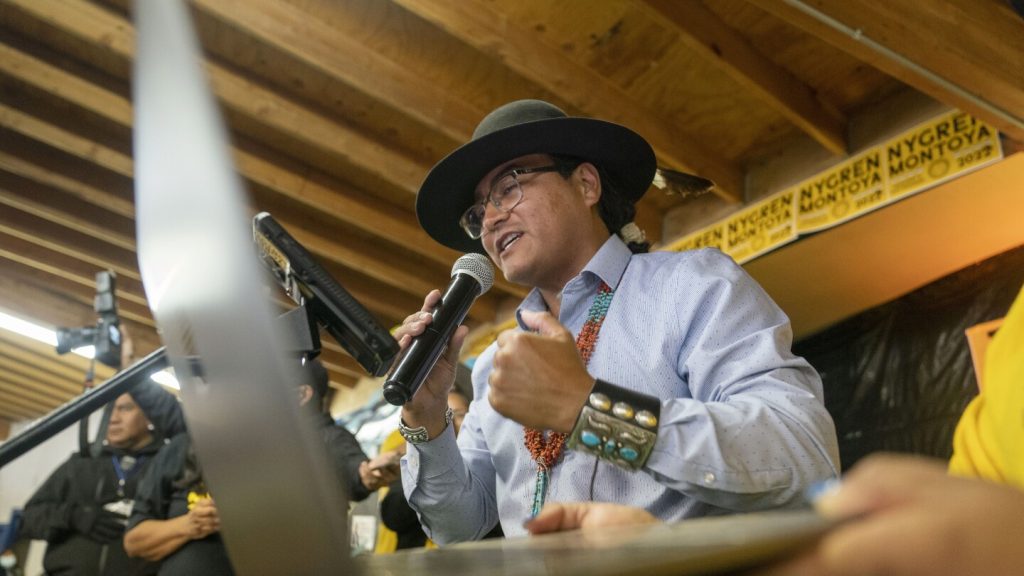The president of the Navajo Nation, Buu Nygren, has announced that he has removed responsibilities from his vice president, Richelle Montoya, citing her lack of representation of his administration. Nygren suggested that Montoya should consider resigning from her position as the highest-ranking woman in the history of the Navajo Nation. The announcement comes amidst political upheaval within the tribe, triggered by allegations of intimidation and sexual harassment made by Montoya in April. An independent investigation into her claims was initiated, while opponents of Nygren began collecting signatures for a recall effort.
Nygren criticized the recall effort and highlighted the importance of focusing on issues affecting Navajo families, such as housing, employment, and access to basic services. He accused his detractors of being self-seeking power-chasers who prioritize their own interests over the well-being of the Navajo people. Nygren emphasized the need for accountability and moving forward with addressing the needs of the community.
In response to Nygren’s decision, Montoya, in a memo sent to her, expressed concerns about being sidelined from critical communications and planning within the administration. She accused Nygren of deviating from their shared vision and betraying the trust of the Navajo people. Montoya, who had been a supporter of Nygren during his campaign, also raised issues of harassment and intimidation that she encountered in the president’s office, leading to the ongoing investigation by the Navajo Nation Attorney General.
Nygren further criticized Montoya for not aligning with his administration’s priorities, including her failure to provide daily schedules and reports. He claimed that Montoya’s decision to sign the recall petition targeting him was a formal break from the administration. The recall effort, led by individuals like Debbie Nez-Manuel, a former director of the tribe’s human resources department, has been fueled by dissatisfaction with Nygren’s leadership and concerns about elder Navajos not trusting the younger generation of leaders. Nez-Manuel emphasized the need for Nygren to resign to address the imbalance in the tribe’s leadership.
Despite the ongoing turmoil, Nygren touted the successes of his administration in meeting the needs of Navajos, including connecting more homes to water and electricity services and negotiating historic water rights settlements. The situation within the Navajo Nation reflects a complex and evolving political landscape, with tensions between leadership and calls for accountability and change. The outcome of the recall effort and the investigation into Montoya’s allegations will likely have significant implications for the future direction of the tribe and its governance.


